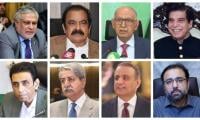Pakistan’s print media is among the most outspoken in South Asia; With Jang Group being at the core of Pakistani Media since its establishment in 1939, it is a quintessential example of the transparent and politically critical publications that set the footings for media activity in Pakistan for years to come. Reflecting upon the origin of Jang it is evident that it was created in close affiliation with the Muslim political movement for independence. It was created by Mir Khalil-ur -Rahman during the cessation of World War II and is now reputed to have ‘a moderate conservative perspective’. Its English publications tend to be more critical of current political affairs and players, while the Urdu publications are milder in their approach. The founder built its foundation on the principles of honesty, integrity, and continually aspired to report political happenings alongside opinions rather being an inherently biased newspaper.
Globally, the relationship between media and governance is a rocky road: with some governments enabling media greater latitude of expression while others attempt integrating and controlling media due to the acknowledgement of the media’s capacity to be politically pivotal and influential. The decades following Pakistan’s independence involved a spectrum of variations in legislation with regards to media laws. Daily Jang has consistently been considered an independent newspaper; Mir Khalil-ur-Rahman stated, “I do try to point out the mistakes of the government. That is my duty. I do not claim that my view is always correct. What I claim is the right to express the views that I think are correct. Mine is neither a government nor an opposition’s paper. Its main objective is to be the first to bring the news worth printing to its readers. That’s why we take changes in the government rather philosophically. Governments can come and go but we have to get along and do our duty to keep the people informed as best as we can.”
Since its beginning, the Jang group has taken incredibly strong stances on political movements: A present-day example of this would be The Lawyers’ Movement. It was operated as a medium to mobilise the people of Pakistan to struggle for their rights of sustainable democracy and independent judiciary. Simply by offering coverage of the lawyers’ actions and protest, the media became part of the process of political and judicial reform that started to take place in Pakistan in March 2007.
Despite all this, there were only three principles Mir Sahab endeavoured to follow in his life -Islam, Pakistan and Urdu, and he strictly adhered to them. It was because of his true patriotism that he never opted for news which was against the integrity and sovereignty of Pakistan. He lived his life for Pakistan and its stability. It was his assiduous passion which took his organisation to the zenith of success. He was criticised from time to time by many top government officials and politicians for giving undue freedom of speech to his columnists. However, he countered with the argument that these were opinions based on facts and were hence, not to be limited or restricted. At all times, Mir Saheb emphasised objectivity and stressed on showing both sides of the picture to the masses, so as to cultivate better public opinion.
Therefore, through the lens of Mir Khalil-ur-Rahman, the essential relationship between governance and media is seen as a rather pivotal one which works in tandem to heavily influence public opinion. His determined nature sheds light on his belief of the significance and the benefits of a transparent and truly democratic government. Mir Khalil-ur-Rahman has indeed carved a niche for himself in the long and arduous history of the struggle for press freedom in Pakistan. There are many in Pakistan today who owe their career and progress in journalism to Mir Khalil-ur-Rahman’s patronage and support, and who will always remain grateful to him for what they have achieved for themselves and their families in Pakistan.
Due to breakdown, power was cut off in Mall Road, Jhikagali, Bhurban, Expressway and other areas
Demonstrators criticise introduction of a token system at the Kuntani border
He says bunkers would be demolished and weapons collected to restore peace to the area
Special Judge Central Shahrukh Arjumand conducts hearing at Adiala Jail on Friday
PN flotilla was led by Commander 14th Destroyer Squadron, Commodore Muhammad Umair
ATC Special Judge Amjad Ali Shah approves her bail until January 13







